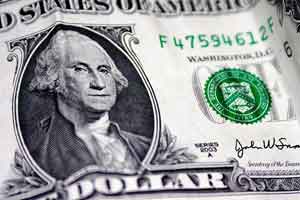Shopping Addiction - Help You Can Use Now
5 key strategies to help you curb out-of-control spending
 "Shopping Addiction – Help You Can Use Now" courtesy of iChaz
"Shopping Addiction – Help You Can Use Now" courtesy of iChaz"How much did you pay for that?"
"£10,000," he replied sheepishly.
Dan had a shopping addiction. I doubt whether he even used that £10,000 camera and, thankfully, I talked him into taking it back and getting a refund. But that was just the tip of the iceberg. He was well paid, but his debts were spiralling upwards out of control. He had kids in private school, a mortgage the size of Northern Canada, and a wife who was in the dark as to her husband's antics and thought everything was just fine. It wasn't.
"I buy on the internet, from the shopping channel; as soon as I've brought a new car, I want an even newer, better one. We should be comfortably well off, but because of my spending habits we're in danger of losing everything."
Dan felt compelled to "have the best of everything" - if they went out for a meal, he'd always order the most expensive wine (even if he preferred a cheaper vintage). The more expensive something was, the more he felt he had to have it.
"We shouldn't have any debts," he admitted miserably, "but thanks to me we are now living beyond our means." I spoke to Dan some more and he told me he shopped when he felt anxious or bad about himself and that, "for a little while," he'd feel better. He asked me plaintively why people get shopping addiction.
Shopping addiction - the modern curse
The causes aren't far to seek. Politicians tell us to spend for the good of the economy. People give us attention when we display something new, whether a jacket or sports car. We are surrounded by advertisers selling the message that spending will make us happy, fill empty lives, and pour love into the void of empty marriages. Shopping itself is a satisfying ritual with a beginning, middle, and end that mimics achievement: "Wow, well done, you've managed to spend your money on a new cashmere sweater!"
No wonder around 6% of the US population are thought to have a shopping addiction (1).
Dan desperately wanted to buy a solution to his shopping addiction: "Can you hypnotize me to never want to shop again? I don't care what it costs!"
I suggested that human beings, whilst perhaps simple in some ways, were not quite as simple as all that and a more comprehensive solution to such a comprehensive problem was needed. Here are some of the ideas that helped Dan overcome his compulsive shopping:
1) Find other ways to deal with stress
Dan couldn't answer the question "How do you cope with stress?" other than describing again how he'd go spend more money. I asked him how he'd relaxed way back, before he'd had any money to speak of. He talked wistfully of surfing, hiking in the hills, and chatting to friends for hours in a coffee shop. "I didn't think about spending money back then; I was too busy having a good time!"
"Has all that gone forever?"
"Well, I guess not. I can still go walking in the hills."
Later I hypnotized Dan and we re-evoked walking outdoors, enjoying the "freedom" (with the emphasis on the "free") of nature again. At the end of our session, I asked him to take three walks out in nature between now and when I saw him again. He had to start using really effective ways to deal with the stresses of his life, ways which didn't threaten his family's financial future.
Right now, think about why you've been compulsively shopping. If you suspect it's been a clumsy attempt to deal with stress, then focus on other, better ways and start using them.
2) Talk to the ghost of Christmas future
Have you ever read or watched Charles Dickens's A Christmas Carol? Ebenezer Scrooge is forced (by the ghost of Christmas Future) to confront his own potential fate if he carried on as he was doing. Dan had been burying his head in the sand, preferring to live in the present and not thinking about how his buying decisions now would determine his family's future. During hypnosis, I not only got him to really think about, but also experience, how his life would become if he continued on the same road. I wanted him to really connect to that vision of his future before he was tempted to throw money he didn't have at things he didn't need. Later he said that a couple of times he'd been tempted to spend uncontrollably but "the ghost of Christmas Future had paid me a visit and stopped me!"
Sit down and really focus on the likely consequences of all your purchases (and even if they seem small of course they soon add up).
3) No secrets here - stick to your budget
It sounds obvious, but if you earn £500,000 a year (as Dan did) but spend £600,000 a year (as Dan also did), you're going to be poor even though you're earning great money. We worked out exactly what Dan should spend a year, then a month, and then a week, and finally a day to get his finances back on track and start moving away from that scary future of which he'd got such a horrifying glimpse.
4) Ditch the 'luxuries'
Dan told me that much of his motivation to buy was fuelled by a desire to impress other people by demonstrating he could afford luxuries. He said his clothes "had to be designer labelled", each holiday had to be more exotic than the last, and champagne had become a nightly rather than occasional beverage. His wife said she was happy to buy cheaper alternatives but, no, Dan insisted on always "having the best". We spoke about poverty, how billions of the world's population go to bed each night with empty stomachs and will never taste clean drinking water. How the meaning of 'luxury' is so relative. And I suggested that when luxuries become the norm, they actually lose their value because what makes something a luxury is its scarcity. When you always have something, it's not scarce.
There and then Dan promised to ditch regular luxury buying and try to buy (for a whole week at first) just what he needed. When I saw him next, he was actually elated and proud that he had restrained himself from buying what he didn't need. How had he done it?
"Every time I was tempted to splash out on something I didn't need, I took this little photo of a starving African child out of my pocket and stared at it. I then found I didn't really want what I had been going to buy any more." Dan was nothing if not a creative problem solver.
5) You can't take it with you; what's really valuable?
"Only that which cannot be lost in a shipwreck is yours." Al Ghazali, Persian Scholar 1058-1111
You might buy stuff because the compulsion to shop has got the better of you, only to find that the enjoyment you get from having whatever it is you bought is fleeting. Having a new car may be wonderful for the first day, great for the first week, but after a month you may barely notice it.
What's really important? I've had so many unhappy adults sit in front of me over the years lamenting that their parents had thrown money at them but had not spent real time with them. No one says of deceased people at their funeral: "He has so many great watches and cars!" or: "She had such a collection of designer shoes!" It's you they talk about, not stuff you bought.
Dan overcame his shopping addiction for good when he recognized how he'd been trying to improve his life by focusing on the wrong things. He told me he was now enjoying living his life, not trying to buy a new one.
References
- Black, D. "A Review of Compulsive Buying Disorder." World Psychiatry. 6:14-18. 2007.






